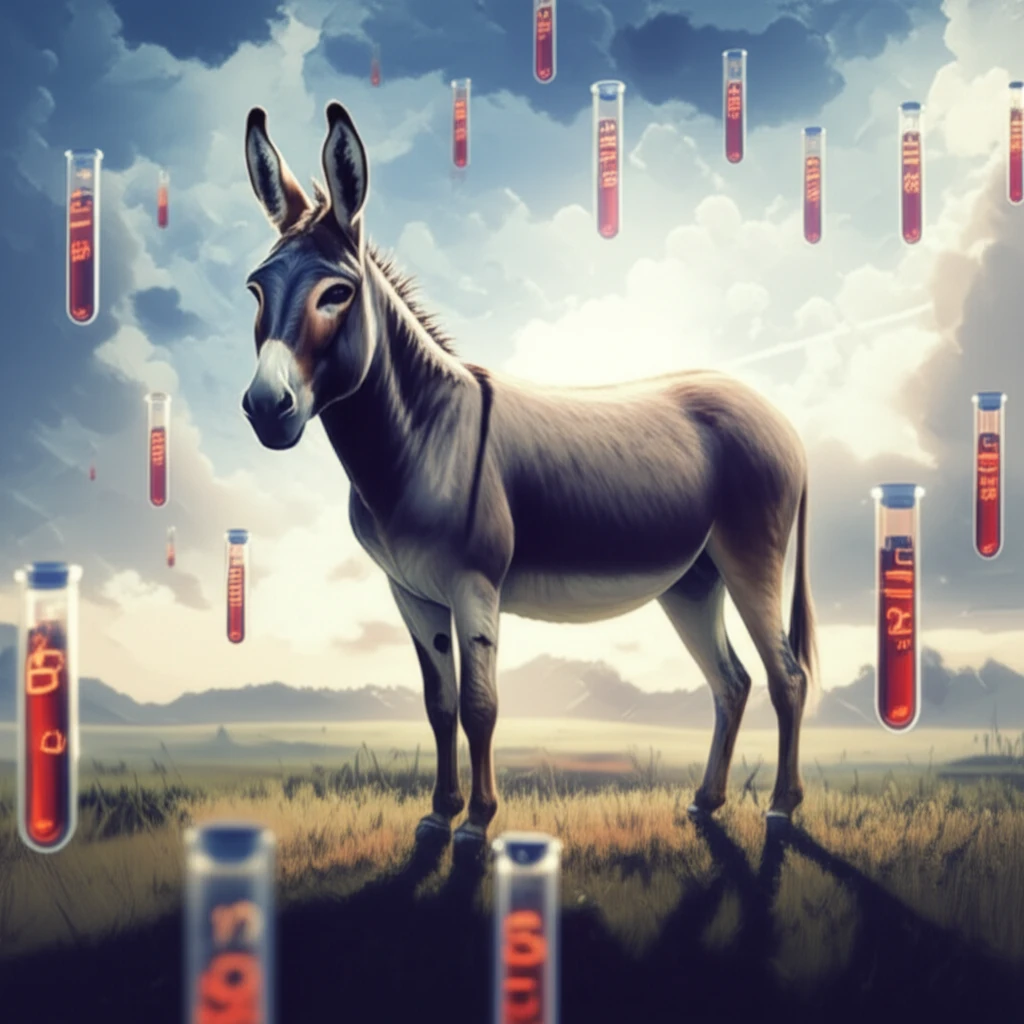
Donkey Health: What Blood Tests Reveal About Your Pêga Breed
"Unlock the secrets to your Pêga donkey's well-being through understanding their serum biochemical profile."
For donkey owners, ensuring the health and well-being of their animals is a top priority. The Pêga breed, known for its strength and resilience, is a significant part of Brazil's equine population. Understanding the factors that influence their health is essential for providing proper care.
Like humans, donkeys undergo routine blood tests to assess their overall health. These tests, known as serum biochemical profiles, provide valuable information about organ function, metabolism, and potential health issues. However, interpreting these profiles requires an understanding of the specific characteristics of the Pêga breed.
A recent study investigated the serum biochemical parameters of Pêga donkeys in the state of Minas Gerais, Brazil, analyzing blood samples from 123 animals of different ages and sexes. The study revealed important insights into how these factors influence key health indicators, providing a valuable resource for donkey owners and veterinarians.
Decoding the Blood Test: Key Health Indicators in Pêga Donkeys

The study evaluated a range of serum biochemical elements, including proteins, minerals, and enzymes. These elements provide insights into various aspects of a donkey's health, such as:
- Total protein: Group 4 (49-72 months) showed the highest values, indicating optimal protein levels during this stage of life.
- Albumin: Group 2 (7-12 months) had lower levels, potentially due to stress after weaning, which can reduce food intake.
- Cholesterol: Group 1 (≤6 months) exhibited higher levels, reflecting a diet rich in milk and intense metabolic activity during rapid growth.
- Phosphorus: Group 1 also had higher phosphorus concentrations, linked to the anabolic action of growth hormone and a milk-based diet.
- Calcium: Group 2 showed lower calcium values, possibly due to reduced mineral intake and high demand during active bone growth.
- Magnesium: Older donkeys (Groups 4 and 5) had higher magnesium values, indicating adequate mineral intake in mature animals.
- Females had higher levels of total protein, globulins, and triglycerides, reflecting the physiological demands of pregnancy and lactation.
- Males showed higher values for the A:G ratio, calcium, phosphorus, and creatine kinase (CK), indicating greater muscle mass and bone development.
Taking Control of Your Pêga Donkey's Health
By understanding the influence of age and sex on serum biochemical values, donkey owners and veterinarians can make more informed decisions about their animal's health care.
Regular blood tests, interpreted in the context of these factors, can help detect potential health issues early on, allowing for timely intervention and treatment.
This knowledge empowers owners to provide targeted nutrition, adjust management practices, and ensure their Pêga donkeys thrive throughout their lives. It is important to consult with a veterinarian to establish appropriate reference ranges for your donkey and interpret blood test results accurately.
